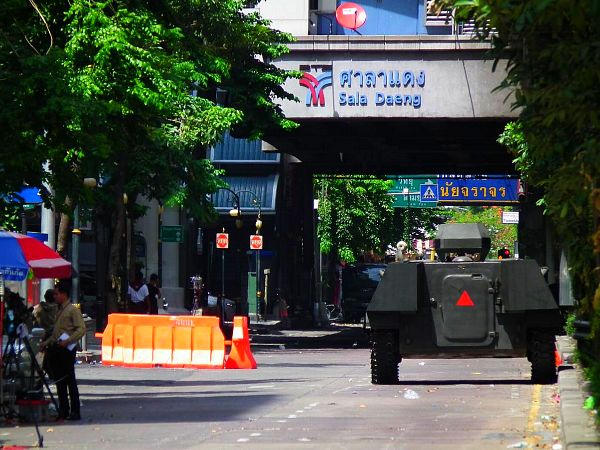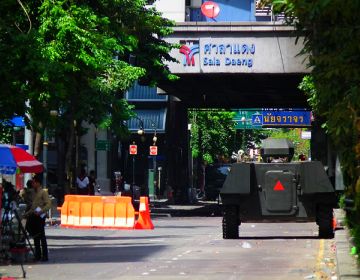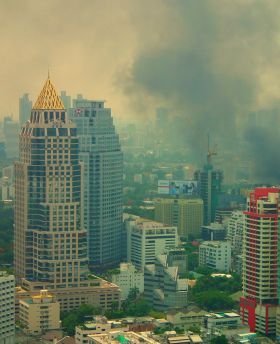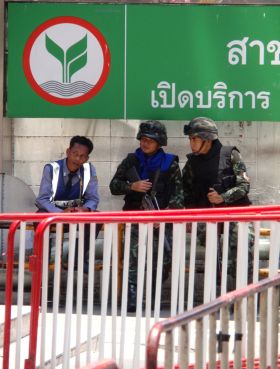
Photo: Dane Phillips
Ed. Note: This piece was written just after the military crackdown in Bangkok last week, and before the purported “return to normalcy” today.
I LIVE ON THE edge of the protest site in Bangkok, and I watched much of the city burn from my office window this morning. I’ve had soldiers with machine guns as doormen for weeks, and the echoes of explosions and gunshots have replaced the noise of traffic and bustle in the city.


